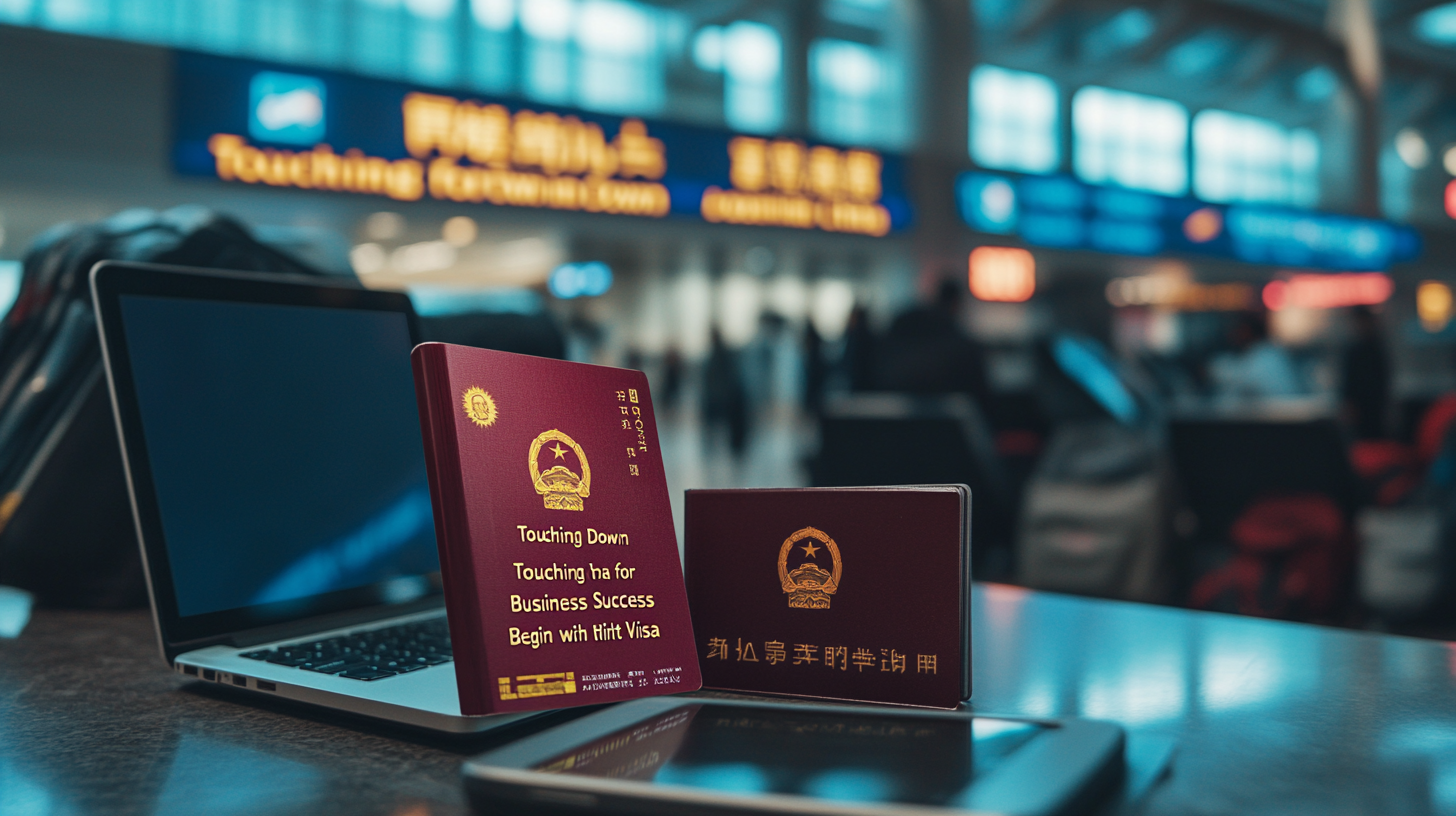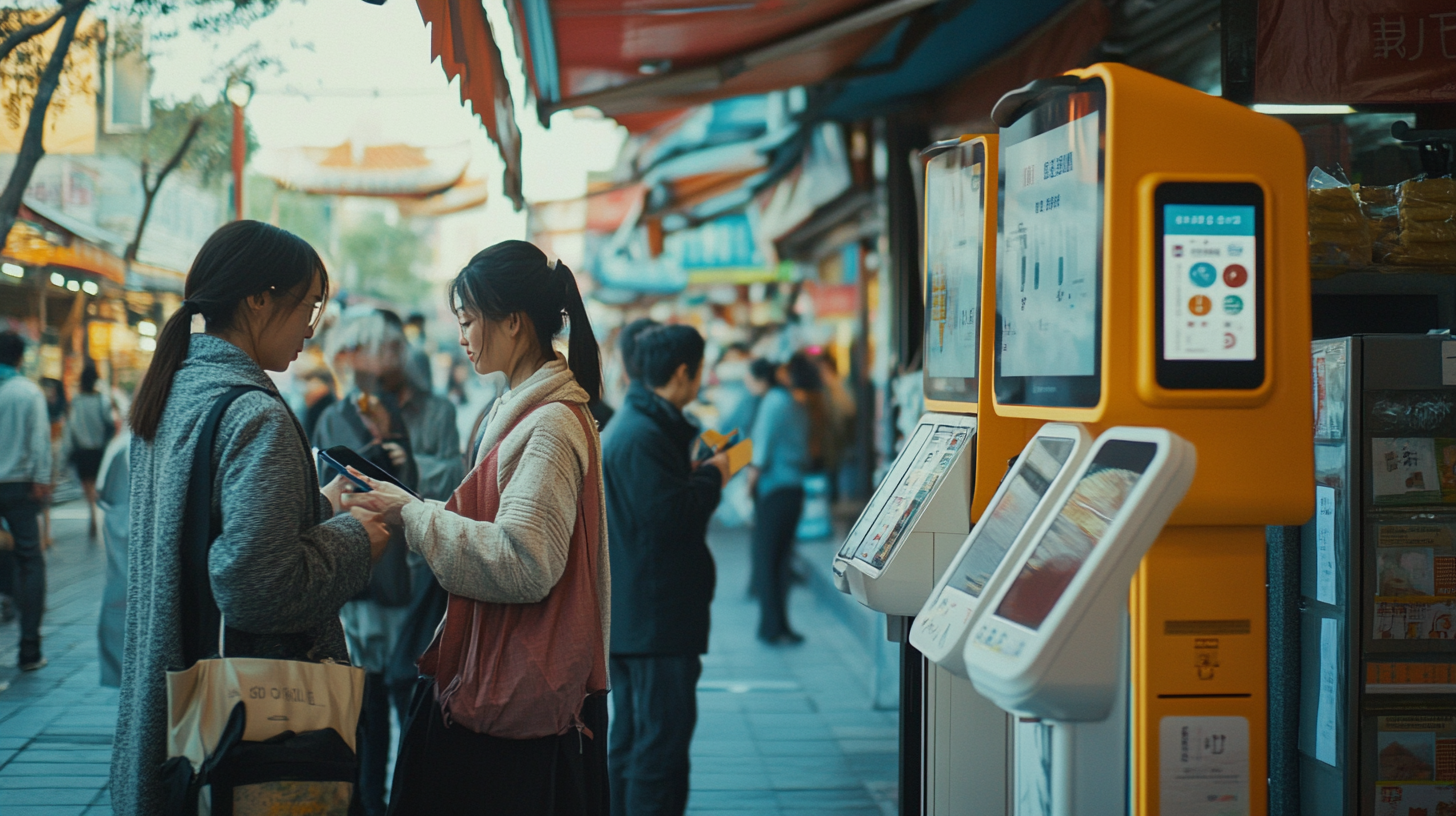Touching Down in China for Business Success

I’ve always found it fascinating how every takeoff and landing offers a chance to learn something new about global travel. In my own journeys, I’ve discovered that success in China’s business arena requires careful planning, cultural awareness, and a willingness to embrace new perspectives. Below, I’m sharing expanded insights on how to ensure a productive trip, both inside and outside the conference room.
1) Begin with the Right Visa

Having the right visa sets the foundation for a smooth journey. I’ve noticed that the M visa, intended for trade-focused activities, can grant a stay of up to 30 days and, in some cases, remain valid for multiple years. Through talks with fellow travelers in 2024, I learned that this process consistently takes around four business days, but it’s wise to apply well in advance to accommodate any delays.
One key detail is the invitation letter requirement, often overlooked by first-timers. According to official data from the Chinese Ministry of Foreign Affairs, incomplete letters are a leading cause of processing holdups. So, double-check the wording, dates, and purpose of the visit. That meticulous approach will help win over visa officers, who see hundreds of applications daily.
I’ve also heard from many frequent flyers that the F visa is designed for noncommercial or cultural exchanges. If your itinerary doesn’t focus on trade or commerce, make sure you choose the visa type that matches the trip’s real intent. It saves you time, frustration, and potential logistical nightmares upon arrival.
2) Prioritize Guanxi and Etiquette

Establishing rapport in China hinges on guanxi, an intricate network of relationships that combines respect and reciprocity. I’ve seen business deals stall simply because visiting executives ignored traditional etiquette. Even simple gestures, like handing over business cards with both hands, resonate with local partners.
To build solid guanxi, you can’t shy away from respectful gift-giving or accepting dinner invitations. One business contact from Shanghai once told me that a thoughtful gift—something symbolic but not overly extravagant—creates a lasting impression. This aligns with how deeply personal bonds can influence negotiations. If a meeting starts off with mutual respect, the rest of the discussion often flows more smoothly.
In my experience, acknowledging hierarchy is a must. Greet senior figures first, and address everyone by their title if possible. A recent study in Asian Business Review (2023) found that nearly 80% of Chinese business professionals prefer formal introductions. These small steps pave the way for deeper trust and collaboration.
3) Guard Your Digital Footprint

Whenever I land in a new place, I’m mindful of digital security. China has put in place policies that can include device checks, especially at borders or in areas with heightened security. U.S. government websites often caution travelers to use dedicated “clean” devices containing only essential data. Leaving sensitive documents in cloud storage, accessible only via secure login, can be a safer approach.
Internet censorship is also a reality you shouldn’t overlook. Western social media or messaging services may be restricted. If you rely on access to these platforms, investing in robust, reputable software solutions helps. In one of my earlier visits, I discovered midtrip that I couldn’t open certain work files on file-sharing sites. With the right prep, you can avoid those last-minute scrambles.
According to a 2024 global cybersecurity report, nearly 60% of travelers experienced at least one connectivity challenge during overseas trips. Having contingency plans—like offline files, an international phone plan, and knowledge of local cybersecurity norms—can keep you on track to meet your business goals.
4) Cashless but Not Cardless

China’s shift toward mobile payment apps, especially Alipay and WeChat Pay, still amazes me every time I visit. You can pay for anything—from a quick snack at a night market to a hotel suite upgrade—simply by scanning a QR code. I’ve even seen street performers collect tips digitally, a testament to how widespread the practice has become.
However, it’s wise to also carry a small amount of Renminbi (RMB). Not everyone uses digital transactions, particularly older residents or smaller enterprises. Plus, unexpected card issues can occur if your bank flags overseas spending for fraud. That happened to me on one trip, and a pocketful of RMB saved me from missing out on a local train ride.
Keep in mind that international banking rules can shift. According to a 2025 financial regulation update, some foreign credit cards might see intermittent acceptance in rural areas. Ensure you’re prepared with multiple money-access methods, so your business itinerary remains on schedule.
5) Navigate Transport and Transit Options

Traveling within China can feel like a world of possibilities—high-speed trains, budget flights, robust metro systems—it all depends on your route. Many major Chinese cities are connected by bullet trains, which still blow me away with their efficiency and comfort. In my experience, booking train tickets well ahead of holidays or busy conferences can save serious hassle.
Note that some travelers qualify for extended visa-free transit stays, which used to be up to 72 or 144 hours in certain major airports. By 2025, additional pilot programs have expanded transit privileges to around 10 days, depending on your nationality. Keep an eye on official tourism board updates, as these policies evolve quickly.
If you’re juggling meetings in multiple cities, I recommend using local travel agents or at least a reliable translation app. In 2024, I nearly missed a connecting flight in Chengdu because a time change wasn’t clearly communicated in my booking confirmation. The difference between success and a missed opportunity sometimes comes down to local know-how.
6) Prepare for Cultural Nuances

Respect and harmony anchor Chinese social customs, especially in formal business contexts. I’ve witnessed how typical Western directness can sometimes be perceived as too aggressive. By softening the language and focusing on collaboration, you’ll generally find negotiations flow more smoothly.
For instance, around 2023, I remember a colleague who unintentionally brought up sensitive issues about family planning during a luncheon. It created an awkward moment that needed a quick pivot to salvage the relationship. Learning about local habits—like the importance of saving “face”—helps you avoid gaffes and strengthens connections.
Punctuality is another critical factor. Being five minutes early to meetings shows respect, while being late can be read as indifference. A 2024 survey in the China Business Etiquette Journal pointed out that 87% of executives feel punctuality directly affects their trust in a new partner.
7) Leverage Local Support for Multi-City Trips

I’ve found that partnering with local experts is like unlocking a hidden superpower. When you’re booking successive meetings across multiple provinces, the game plan can change day by day. Flights can be rescheduled, trains might run late, and traffic conditions vary widely between urban centers and small towns.
In one case, I was introduced to a local business consultant who helped restructure my daily appointments on the fly. That flexibility safeguarded key negotiations from falling through. Having someone who speaks the language fluently and understands the social quirks can mean the difference between closed deals and missed opportunities.
A recent industry study suggests that businesses using local fixers or intermediaries saw a 25% higher success rate in finalizing deals. That’s a compelling reason to invest in a partner who understands Chinese culture, geography, and the regular ebbs and flows of the market.
8) Handle Documentation with Care

There’s nothing like being in a busy train station and realizing you can’t pull up your digital hotel reservation because the internet’s spotty. That’s why I’m a big believer in carrying physical copies of crucial documents, from contact lists to hotel bookings. In some government offices, presenting a paper copy can expedite identity checks while your phone’s still searching for a signal.
Make sure your electronics are ready for the journey, too. China uses 220V outlets, so a universal adapter is non-negotiable. I used to bring just one adapter, but now I carry a second in case it malfunctions or gets lost. According to a 2025 technology accessory survey, 43% of international travelers forget crucial adapters on their first trip, causing unnecessary inconveniences.
If you’re especially cautious, print your itinerary in both English and Chinese. I once had a driver in Guangzhou who quickly found my hotel because I had its address in Chinese characters. The simpler you make it for those assisting you, the better your trip will go.
9) Stay Healthy and Safe

One lesson I learned quickly: tap water isn’t always the best choice in many parts of Asia, including major Chinese cities. Stick to bottled or boiled water when in doubt. Keep a reusable bottle on hand if you have access to filtered water at your hotel or business venue.
In terms of health facilities, major cities offer reputable hospitals that cater to foreigners. But in smaller towns, English-speaking medical staff might be limited. Having international medical insurance and contact numbers for recommended medical centers can be reassuring. That peace of mind is priceless in a pinch.
Legal and safety precautions matter, too. Check the latest advisories—particularly on official government websites—before heading out. The situation can shift with local events or global currents. It’s better to invest a few minutes in reading reputable sources than to navigate complex legal or health challenges alone.
10) Keep Calm and Build Lasting Connections

Perhaps my favorite element of traveling in China is the sense of unfolding possibility. Negotiations often continue over multiple dinners, each one an opportunity to strengthen trust and mutual understanding. In my own experience, patience wins more deals in the long run than aggressive tactics ever could.
Relationships seldom flourish overnight. Staying curious, asking thoughtful questions, and showing genuine respect for cultural traditions foster meaningful bonds. I recall one partnership that took nearly a year of back-and-forth communication before culminating in a successful launch event in Beijing. The journey may be slow, but the results can be worth every step.
At the heart of it all, China rewards openness. Whether you’re finalizing a contract or taking a bullet train to your next meeting, approach every interaction with sincere curiosity. Lean into the local rhythms, respectfully share your own culture, and watch how mutual understanding can open all the right doors.
Final Thoughts
Traveling through China for business in 2025 feels more vibrant than ever, with reopened borders and revitalized markets. From the moment you step off the plane, each decision you make—whether it’s scheduling an extra day to explore cultural sites or double-checking your travel documents—affects your ability to form genuine, lasting relationships.
I’ve seen firsthand how going beyond basic research pays dividends. A thoughtful approach to visas, wallet-friendly payment methods, and a keen sense for local etiquette can turn a standard trip into a transformative business journey. Ultimately, maintaining respect, professionalism, and curiosity amplifies every conversation you have.
With these strategies in mind, you’re well on your way to thriving in China’s ever-evolving marketplace. After all, global travel is about so much more than just crossing borders—it’s about forging connections that last a lifetime.
Ryder’s Take
Observing China’s commercial scene from my vantage point has taught me that effective negotiation goes hand-in-hand with personal connection. By treating each handshake or shared meal as a gateway to mutual understanding, I’ve witnessed partnerships form with surprising ease.
For me, the dream seat is one that offers both a comfortable view of the skies and a smooth path to new insights. Traveling in China keeps me motivated to stay curious, flexible, and ready to embrace a culture defined by respect and warmth.






